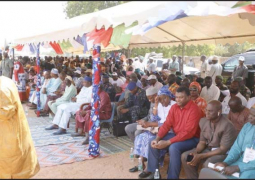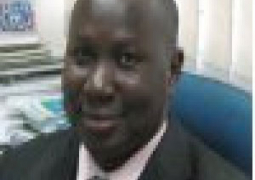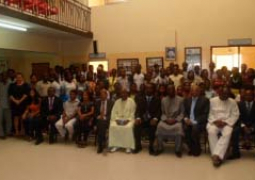The Executive Director of GAMCOTRAP Dr. Isatou Touray recently delivered a keynote address at the opening of a three-day sensitization workshop for 30 journalists across the country on effective reporting on FGM.
Organised by the Association of Health Journalists of The Gambia and Funded by the United Nations Population Fund (UNFPA), the sensitization was held at the Baobab Resort in Bijilo.
According to Dr. Touray, over the past year's GAMCOTRAP has taken the initiative to train media practitioners on the health effects of FGM on the sexual and reproductive health and health rights of women and girls. She noted that they are now beginning to see evidence of the impact of those initiatives from the responsible reporting monitored on the subject matter.
Dr. Touray stated that FGM remains a health hazard and serious concern for GAMCOTRAP and all those who care, adding that women continue to face the consequences of the practice in many ways.
FGM, Dr. Touray noted, remains one of the main reasons for high rate of maternal mortality and infant death in many African countries, coupled with other practices such as early marriage. "According to the World Health Organization, an estimated 100 to 140 millions girls and women worldwide are currently living with the consequences of FGM," she added.
She said in The Gambia, despite the downward trend the prevelence of FGM remains on the high side with 78% for women aged 15-49 according to MICS 2005/2006.
She noted that the media is a critical apparatus for promoting women’s health and the role they play determine the outcome of the efforts made by various areas of government, UN agencies and the few indigenous organizations.
Dr. Touray pointed out that after series of training on FGM, the media has made significant efforts in the debate. She said since then, the media have been very supportive in publishing articles from the community interventions, which are important to raise awareness about the realities taken place in rural communities. She added.
Read Other Articles In Article (Archive)
Happy Anniversary
Jul 21, 2015, 10:08 AM




